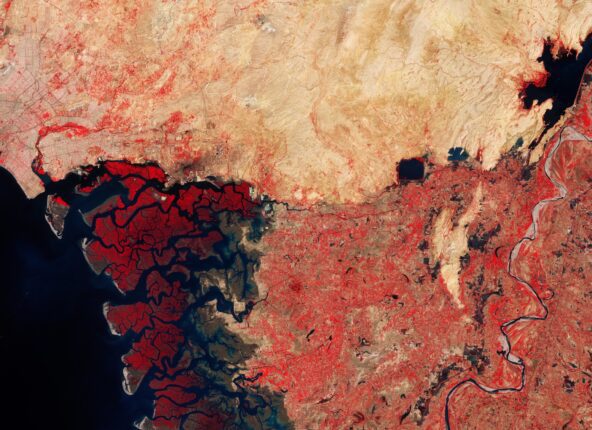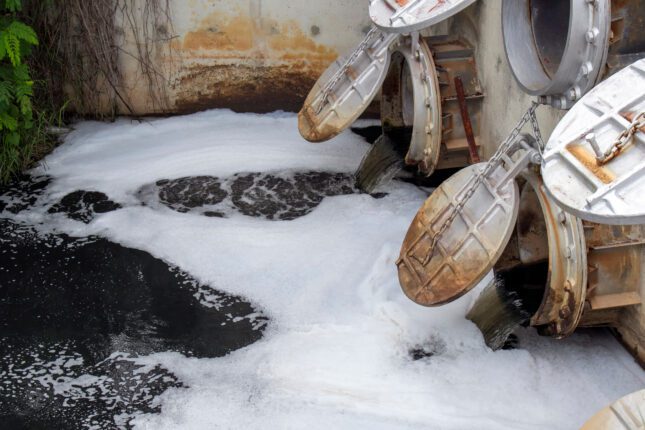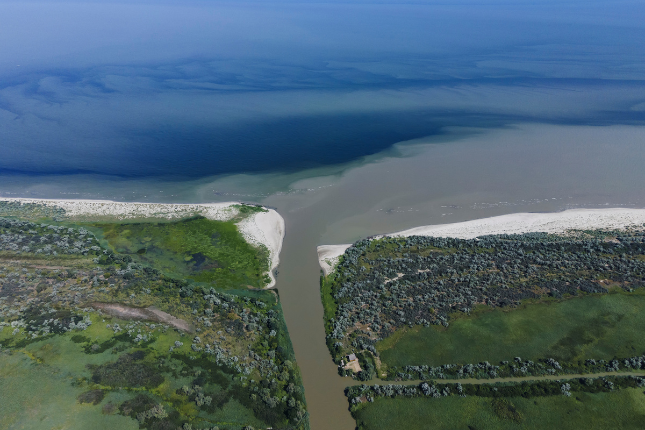-
Deep Currents: Assessing Threats to the Indus Waters Treaty
›
The Indus Waters Treaty of 1960 has kept two nuclear-armed rivals – India and Pakistan – in a stable river sharing arrangement for more than six decades. Yet that significant achievement now seems to be at risk.
India’s government has stated it is holding the treaty in abeyance and is threatening to cut off water to Pakistan after a terrorist attack killed more than 20 Indian citizens in late April 2025. India’s Prime Minister Narendra Modi described the treaty as a “blunder” and a “betrayal” of India’s dignity committed by then Prime Minister Jawaharlal Nehru, and proclaimed that “blood and water cannot flow together.”
-
Toxic Threads: Southeast Asia’s Textile Pollution Poses a Growing Security Threat
›August 11, 2025 // By Md Mursalin Rahman Khandaker
In today’s world of fast fashion, a $4 crop top travel across continents faster than a letter, and new trends die before a customer hits the “checkout” prompt. Yet the global obsession with cheap clothing creates apparel soaked in a cocktail of dyes, plasticizers, and forever chemicals, that linger far longer than the consumer forces that make them trendy.
The global apparel sector is valued at over $1.8 trillion, and it is the world’s second most chemical-intensive industry after agriculture. For big manufacturing hubs in Southeast Asia (particularly India, Bangladesh, Pakistan), textiles represent an economic lifeline.
-
Environmental Security Weekly Watch: August 4-8, 2025
›
A window into what we’re reading at the Stimson Center’s Environmental Security Program
A Water Security Crisis Grips Pakistan’s Indus Delta (Al-Jazeera)
The Indus delta in Pakistan is experiencing severe environmental collapse as seawater intrusion makes farming and fishing impossible. Salinity levels have risen 70% since 1990, forcing tens of thousands from coastal districts. Over 1.2 million people from the broader delta region have abandoned their homes in the past two decades. The construction of irrigation canals and hydropower dams, compounded by the impacts of climate change on glacial melt, has accelerated the crisis and reduced downstream flow by 80% since the 1950s. More than 16% of fertile Indus delta land has become unproductive, as salt crusts cover the ground and boats must transport drinking water to the region’s remaining villages.
-
Environmental Security Weekly Watch: July 28-August 1, 2025
›
A window into what we’re reading at the Stimson Center’s Environmental Security Program
Low Political Will and Depleted Supplies: Inside Iran’s Water Crisis (The New York Times)
Water shortages are a day-to-day reality for many Iranians, as reservoirs shrink, taps run dry for hours, and water pressure remains so low that it doesn’t reach above the second floor. This acute water crisis is driven by a confluence of climatic changes and poor water policies, as Iran’s five-year drought has combined with overdevelopment, excessive dam development, and draining groundwater for agriculture to push already dwindling supplies to the brink.
-
Environmental Security Weekly Watch | July 14-18
›
A window what we’re reading at the Stimson Center’s Environmental Security Program
The World’s Children Face the Most Severe Impacts from Wildfire Smoke (Mongabay)
Evidence of the alarming impacts of wildfire smoke on child health is growing. Children’s developing lungs, faster breathing rates, and greater outdoor exposure make them uniquely vulnerable, and the threat is intensifying as wildfires grow more extreme, incinerating not just forests but urban areas, releasing toxic heavy metals and chemicals.
-
ECSP Weekly Watch | March 17 – 21
›
A window into what we’re reading at the Wilson Center’s Environmental Change and Security Program
Canal Projects Endanger Water Security in Pakistan’s Indus Delta (Al Jazeera)
Dozens of villages in the Indus Delta have been submerged by the encroaching sea over recent years, pushing thousands to migrate inland. Now, local residents in Pakistan fear that new canal projects may further exacerbate water shortages in the region.
-
Harnessing the Benefits of Water Cooperation in an Increasingly Complex World
›
In an era of apparent decline in international cooperation and rising crises, freshwater offers an area in which joint approaches remain absolutely essential—especially since water often transcends the boundaries of nation-states.
Cooperation has long been the preferred approach in dealing with water resources shared with neighboring countries. Since the first—and so far, only—water war in 2550 B.C.E., states have favored cooperative action over conflict to manage, protect, or develop our planet’s 313 transboundary surface water basins and 468 transboundary aquifers.
-
Climate Change, Peace and Security: Discourse Versus Action in Asia
›
This year’s World Economic Forum called for greater urgency in discussing the impacts of climate change on human security and social, political, and economic stability. And a recognition of the destabilizing effects of climate change also has led the UN to emphasize the risks they pose to the most vulnerable populations, including poor, conflict-affected, and displaced persons.
Showing posts from category water security.









